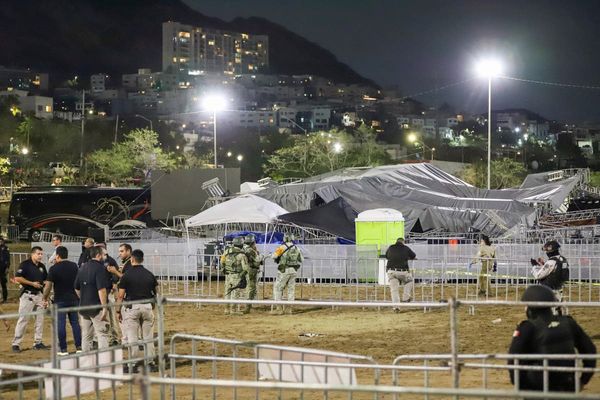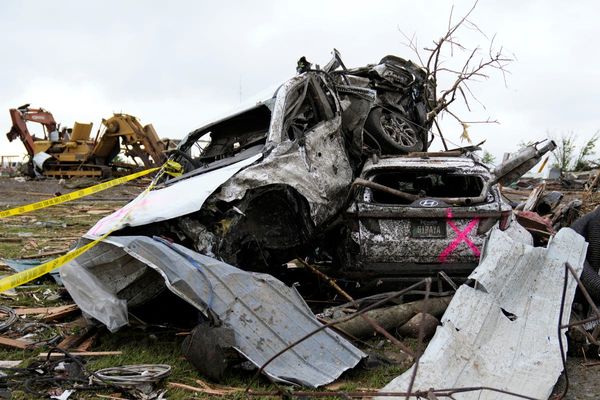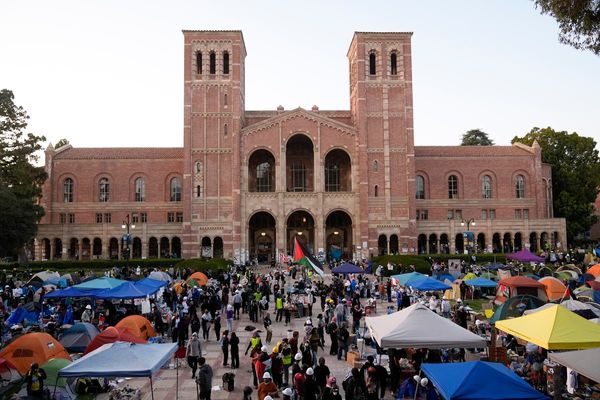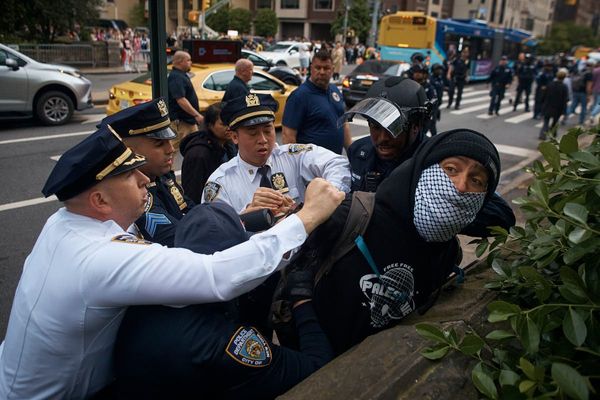
Yorkshire in the late 1970s, and women have been told not to go anywhere alone. While the Yorkshire Ripper mostly kills “prostitutes”, he has been known to make mistakes and murder “innocent” women too – those reckless enough to walk through the streets of Leeds or Halifax or Sheffield without a male escort. What were they thinking?
This is the terrifying context in which Catherine Taylor grew up, hitting puberty just as Peter Sutcliffe and the South Yorkshire Police combined to send a monstrous message about what it means to be female – utterly vulnerable but also entirely to blame. “Things happen after a Badedas bath,” coos a ubiquitous advert for a pricey foaming oil, managing to sound more like a threat than a promise. Taylor and her school friends dare each other to run through the local cemetery after dark to prove that they are not “frit” of the man stalking their nightmares and shaping their days. This is a rare moment of unsupervision – mostly they are ferried door to door by panicked parents.
The violence men do, to the world in general but women’s bodies in particular, is the angry backdrop to this fine memoir. That and the city of Sheffield itself, tipping decisively into post-industrial decline as Taylor is growing up with her elder siblings in one of the city’s well-heeled suburbs. The coal industry is on its knees, and the cutlery trade has been decimated, years before the phrase “global capitalism” is on anyone’s lips. All the same, there is resistance everywhere. Sheffield City Council, led by David Blunkett, draws from Ken Livingstone’s GLC. Transport is heavily subsidised, to the point where it’s difficult to take a bus journey that costs more than five pence. The county of South Yorkshire declares itself a nuclear-free, demilitarised zone. A peace treaty is even exchanged with the city of Donetsk, then part of Soviet Ukraine.
And then there is the miners’ strike, overseen from the National Union of Mineworkers’ headquarters next door to Sheffield Cathedral. In June 1984, three months into the action, tensions explode at the Orgreave coking plant. The whole thing is clearly a setup, with the police helpfully guiding the pickets on to the site like National Trust stewards, even showing them where to park. Then out of nowhere 300 officers wearing riot gear – deployed for the first time on the British mainland – descend, trampling men and women under foot. “What followed,” says Taylor, who watched in horror as the footage unspooled on the national news that evening, “was among the worst examples of police violence in dealing with industrial unrest” in modern times. One miner accused of throwing a stone had, on closer inspection of the photographic evidence, actually been holding a pork pie.
The “stirrings” of the memoir’s title refers to an earlier moment of political violence from the 1860s that has since passed into local folklore. For Taylor, though, the stirrings – of awareness, resistance and protest – lie closer to home. Her father, an academic at the university, has left the family, making her the first girl at school whose parents have split up. While he sets up with a new wife and refuses to pay maintenance, the old family struggles along, getting shabbier and madder. In a gesture that would be cliched if it weren’t so reasonable, Taylor’s mother goes round to her ex’s house and chucks a brick through his window.
For Taylor herself, the psychic violence at home starts to take on the colours of the larger world, one that stretches beyond Sheffield. Now old enough to act for herself, and with the grownups permanently distracted, she makes for Greenham Common. One of the books she has read recently is Over Our Dead Bodies: Women Against the Bomb, published by Virago. But George Orwell’s Nineteen Eighty-Four is rattling around in her head too. Most of her teens she has been waiting for Armageddon, but it is only now, as an adult, that she has come to realise that “dystopias inch forward by mundane, if ever more outrageous degrees”. The worst is always yet to come.
The Stirrings works to construct a world webbed together from guerrilla reading, news headlines, the post-punk music scene (Taylor and her friends attend the gigs of a struggling local band called Pulp simply because Jarvis, the lead singer, has a cousin who is in their year at school) and maturing and misbehaving bodies. While the prose is lyrical and the structure impressionistic, the book offers a way of thinking about the personal past that will speak to anyone who has grown up trying to assemble a self from the bits and pieces of family and political culture randomly assigned at birth. In other words, all of us.
• The Stirrings: A Memoir in Northern Time is published by W&N. To support the Guardian and Observer, order your copy at guardianbookshop.com. Delivery charges may apply.







